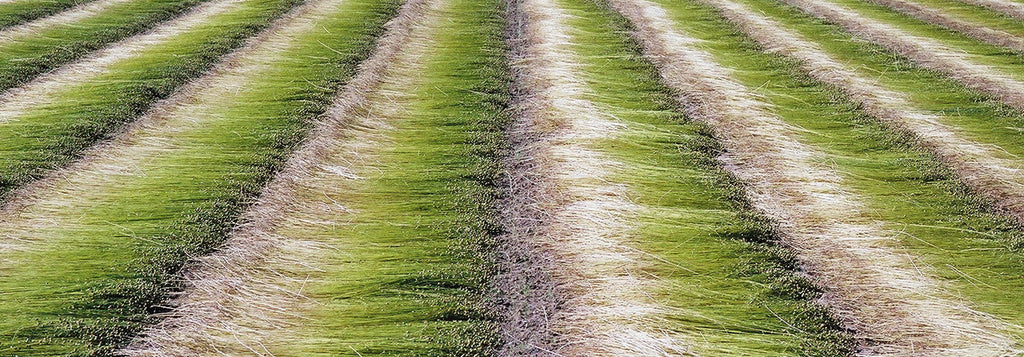Eco-Friendly Fabric
Our Healthy Linen: Eco-Friendly fabric and naturally durable
Natural vegetal material, linen comes from the plant that has the same name, majorly cultivated in France and Europe. Very resistant because of its bark, the linen fiber requires little amounts of pesticides and doesn’t require irrigation. It consumes much less water for its cultivation than other natural materials, making it an eco-friendly fabric by nature.
Thermoregulator, linen keeps its freshness during the Summer. Very absorbing fabric, it dries very fast as well, wrinkling with virtue. Linen resist through time without plush, and becomes softer and softer with each wash. Anti-allergic and non-irritating, it’s worn next to the skin.
Rustic, linen is the world’s oldest textile. Majestic Filatures pioneered in linen crafting for the manufacturing of its t-shirts, offering a soft and high-quality fabric in its collections.


Our Linen Collections
One of the main fabrics of the Majestic Filatures wardrobe, linen is found specially in our Spring-Summer collections. We use linen produced exclusively in Europe. Often mixed with elastane, cotton or even silk in unprecedented proportions, linen can be worn as a t-shirt, a shirt or even jackets and pants. It’s available in a wide range of colors applied by artisanal dyeing.
In a total look or paired with denim or jersey pieces, linen is an essential season after season.

Maintenance Of Your Linen Pieces
Linen is a durable and easy to care for fabric.
- Machine wash your linen garments at 30 degrees with a low spin. High temperatures can weaken the fibers and affect the dyes. If you prefer to wash it by hand, rinse your garments in warm water.
- Hang your linen pieces to air dry. It will make them softer. Be careful not to use thin wire hangers or clips that could leave marks on the garment or deform the shoulders
- When knitted and paired with other fibers such as cotton, linen doesn’t wrinkle. However, when it comes to ironing, remember to steam your garment to preserve its fiber.
